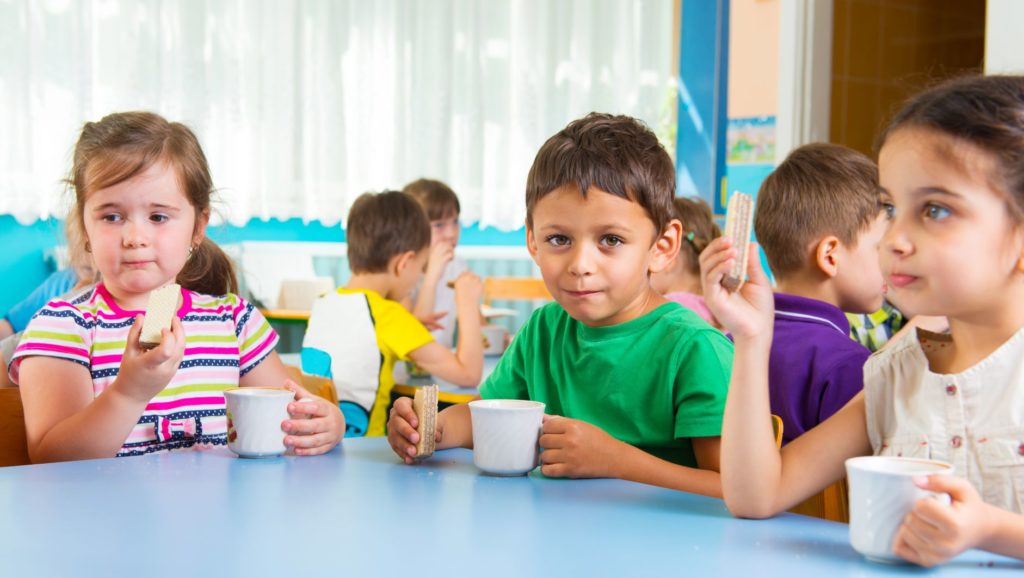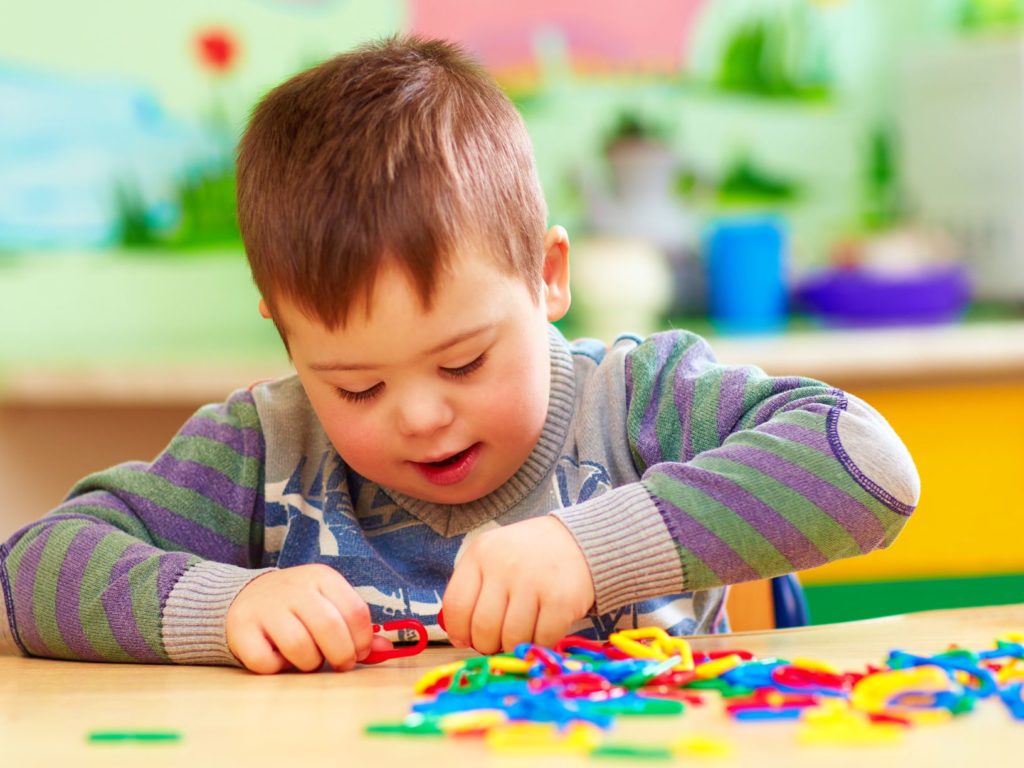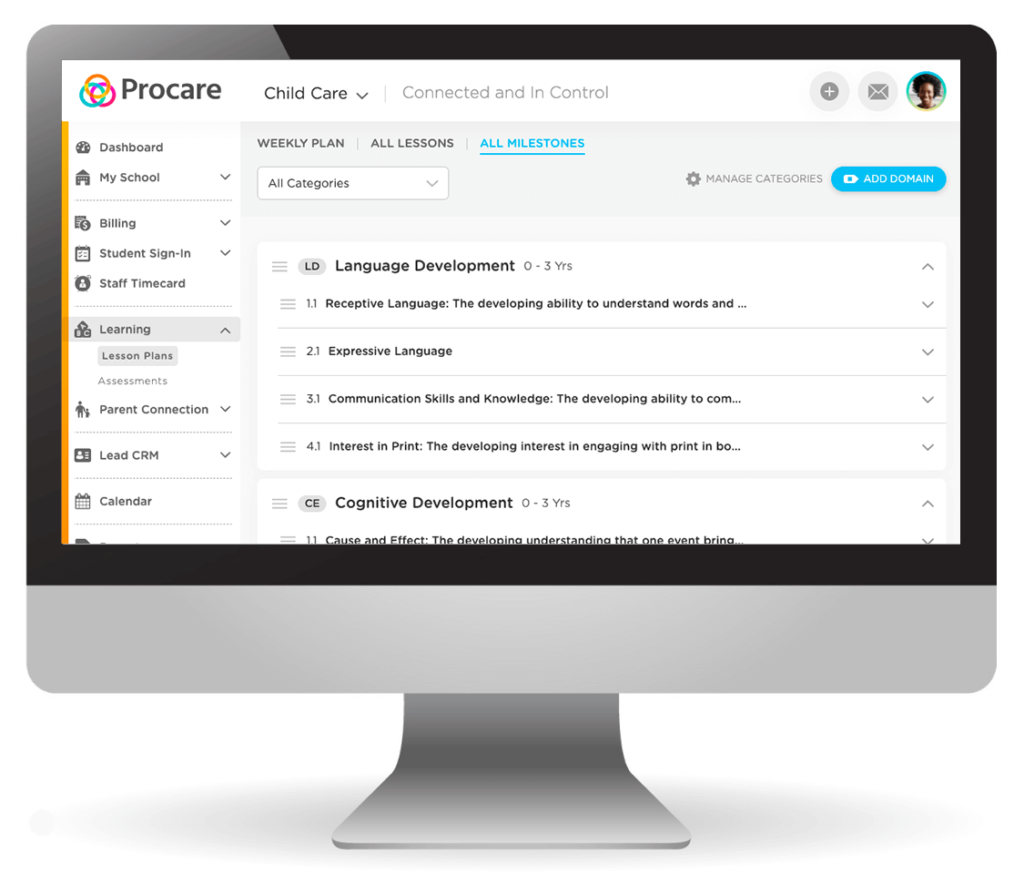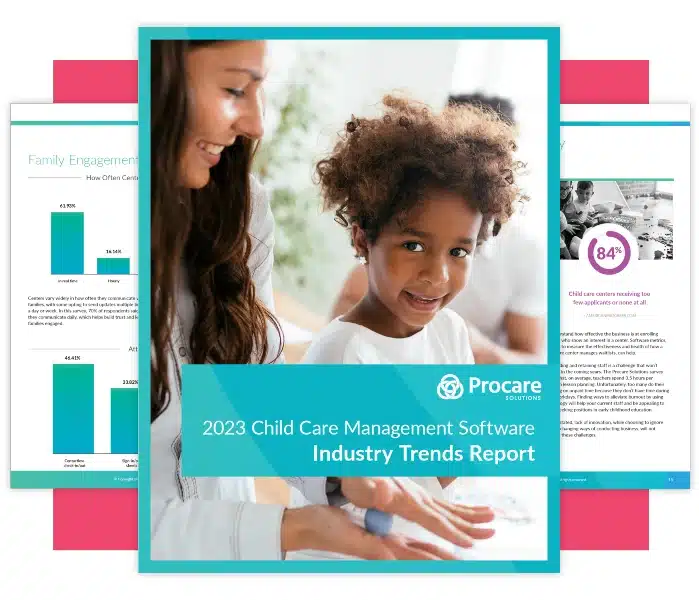
High-quality daycare has been shown to deliver amazing benefits for communities and for kids.
Child care businesses provide valuable services that give parents the freedom to work and advance their careers. They create a community atmosphere where parents and families can network and build relationships. Most importantly, daycare centers provide developmental benefits that help kids reach their full potential.
In this week’s blog post, we’re breaking down the eight most important benefits of daycare for infants and toddlers. Keep reading to find more about the benefits you can expect if you’re thinking about sending your child to a daycare center in your community.
8 Benefits of Daycare
Developing Socially and Emotionally
Of all the benefits of daycare, the social and emotional advantages infants and toddlers receive are most clear.
Kids in child care get to socialize, make friends and develop skills like sharing and cooperation during the most formative years of their lives. Early socialization gives kids the opportunity to practice a wide variety of cognitive and social skills, from self-expression to conflict resolution, problem-solving and teamwork.
Child care centers are designed to support the emotional needs and development of young children. Kids spend time with peers in a supervised, safe environment with supportive, caring and responsive adults. This experience supports emotional health and development, and can help prevent separation anxiety as kids start to develop independence from their parents.
The social and emotional benefits of daycare are lasting: a French study found that high-quality daycare is linked to fewer emotional symptoms, conduct problems, attention dysfunction and relationship issues later in life (BMJ).
Understanding Structure & Routines

Kids in child care learn the foundations of routines and schedules that will help them develop good habits later in life. Getting used to routines and rules is an important part of cognitive development and pays off both in school and at home.
Having a daily routine regulates sleep and encourages healthy habits like self-care and hygiene. It teaches kids to meet expectations and reinforces good behavior. Because of this, kids will gain confidence and stay grounded during times of change or stress.
These routines are helpful for infants and across the child’s entire life. It’s thought that many of the lifelong benefits of early childhood education, such as higher college graduation rates, are tied to the stability of the child care environment.
Participating in the Community
Child care centers allow both children and their parents to participate in the local community, build relationships, and connect with other families and community leaders. In child care, toddlers are exposed to other cultures and families with different views and lifestyles, which is an important first step to understanding the world around them.
Communities are a vital part of child development, as a way for children to find role models and gain new experiences. And for parents, the network of other parents and staff is an opportunity to build connections and share insights about raising their families.
Building Lifelong Skills
In daycare, kids develop skill sets that will be useful not only during their development as little ones, but across their entire life spans. A study by the National Institutes of Health found that teenagers had higher cognitive and academic achievement if they had attended high-quality child care — that is, care with lower staff-child ratios, supportive staff and cognitive-boosting activities (NIH).
Kids who attended quality child care are more likely as adults to gain a college degree and remain consistently employed. They exhibit better cognitive, language and memory development, and more advanced reading, writing and number skills. Plus, they have better self-control and higher self-esteem.
Fostering Independent Children

Daycare gives kids time away from their parents to develop their own likes, dislikes and sense of independence in the world. They’re exposed to new and different activities and experiences that they might not have at home. In a child-centered learning environment, kids get the freedom to direct many of their own activities, try new things and occupy their time without adult direction.
The experience of navigating new situations, making choices and learning the consequences of their behavior helps toddlers develop self-control, independence and a sense of agency. They learn the benefits of patience to achieve their goals and cooperation to work with others. Through these efforts, they begin to trust themselves and gain the confidence to take on bigger and bigger challenges in life.
Boosting Health
Child care centers are important promoters of healthy habits, including good nutrition. Kids in daycare are exposed to more varieties of healthy food and role models for healthy eating. Studies show that children in care are more likely to try new foods, especially when staff eat the same food and talk to them about what they’re eating (Science Direct).
Plus, enrollment in daycare promotes important preventative health measures like vaccinations and health screenings. One study even found that men who had been in a high-quality daycare as babies had better cardiovascular health than those who had not (AAAS).
Kids do encounter more germs when they attend child care centers – but that isn’t necessarily a bad thing. Encountering germs at an early age helps kids develop a stronger immune system, which protects them from getting sick later in life. Kids who don’t attend daycare centers end up taking more sick days on average in elementary school, which can hinder their learning and disrupt family routines.
Recognizing Role Models
Daycare is a great way for kids to get used to respecting and trusting adults. Being supported by caring staff helps children to recognize teachers and other professionals as role models and resources who can help them grow and accomplish their goals. This helps prepare them to develop positive relationships with adults and authority figures throughout their lifetimes.
Kids learn through observing those they look up to. Good behavior, curiosity, politeness, respect for others, perseverance and more can be learned from great daycare staff. And kids with a variety of good role models grow up with more confidence and self-esteem.
Getting Prepared for Kindergarten
Child care provides a fun and stimulating environment where kids build their literacy, numeracy and communication skills, helping them prepare for kindergarten. Child care centers with a focus on education teach the foundations that kids will build on in elementary school, like counting, the alphabet, simple word recognition and writing skills.
Studies show that kids who attended formal child care programs have stronger reading and math skills at age five (Child Stats).
Kids in child care also learn non-academic abilities that they’ll need to succeed in kindergarten. They develop fine motor skills to help with using pencils, crayons and scissors, along with self-care routines like dressing and washing hands. They’ll be better able to express their needs to adults, follow directions, and adjust to being around other children.
The transition to kindergarten can sometimes be stressful, but if a child has spent time in daycare, it can go much much more smoothly. Kids, parents and teachers alike will benefit from the preparation daycare provides.
Procare Solutions: Helping Daycare Make a Difference

Child care centers are vital community institutions that genuinely benefit the lives of the families they serve.
For more than 30 years, Procare Solutions has been there to support child care businesses so they can focus on delivering great benefits in their communities. With solutions that help ease the demands of running a business, Procare connects your operations so you can focus on what’s important: better outcomes for the children in your care.
With Procare’s comprehensive child care management software, you can automate time-consuming administrative tasks, manage child care staff, plan your child care curriculum and engage with parents in real time to strengthen relationships with families at your center.
Ready to find out how Procare can help your daycare center be the greatest possible asset to the community?




